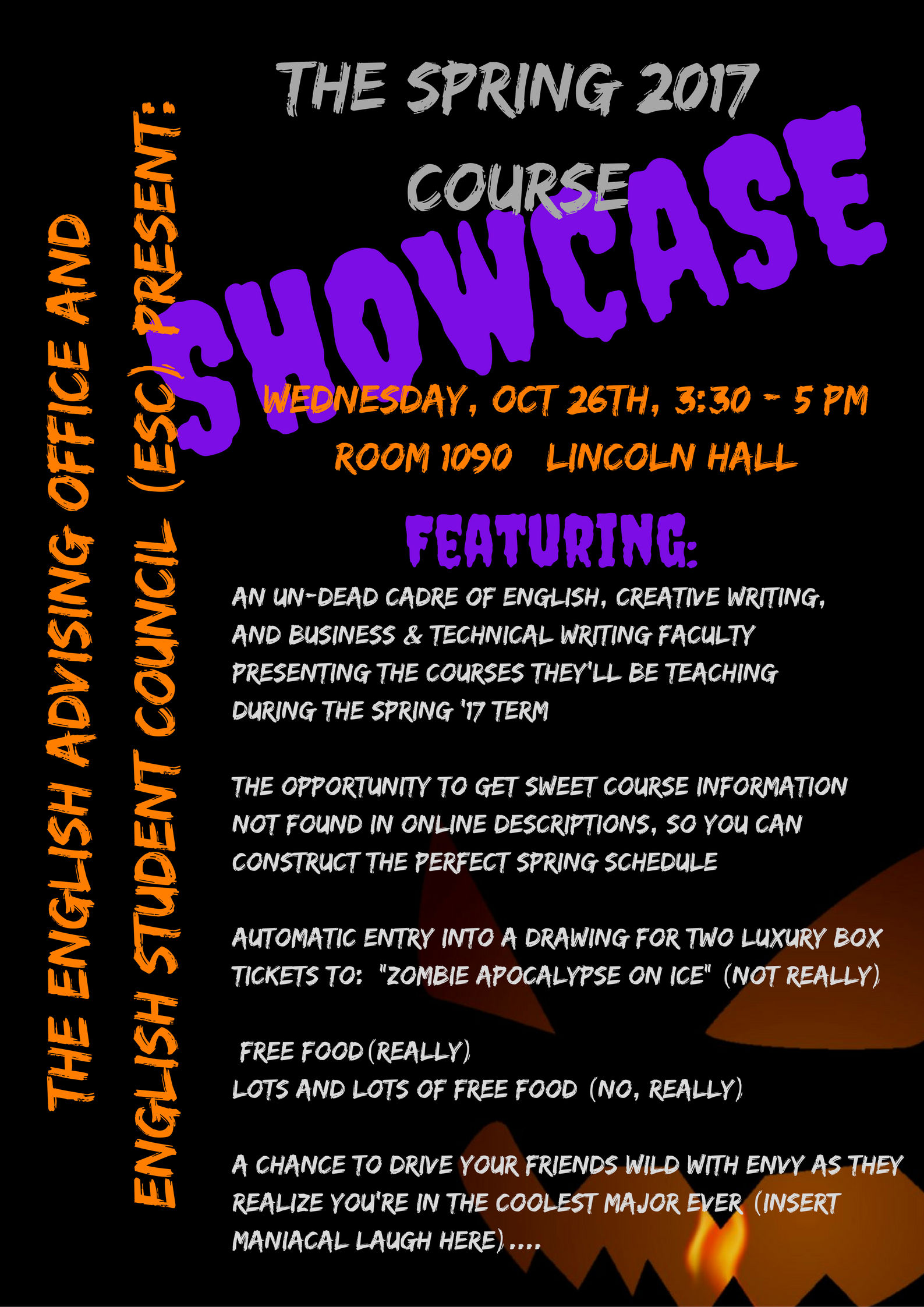As a student myself, I know the sudden panic that creeps in a few weeks into the semester, when all of sudden, you do not want to be in one of the courses you are enrolled in. This can be for a number of reasons, and whether or not you should drop the course becomes a question you ask yourself.
For example, let’s say you are taking a Statistics course, and it seems like the class is going well for you…that is until the first exam rolls around. After you take the exam, you may not be as confident in your ability to succeed in the course, and start to question whether it is the right fit for you. I faced a similar dilemma and began to consider the possibility of dropping the course.
Before you make any serious decisions, however, I am here to remind you that you should go over your options and truly think about what it would mean for you to drop the course. So I sat down with our English advisors to get some more information about dropping courses, and whether you should make that decision.
Question: What should I consider when I start thinking about dropping a course?
Answer: Before immediately drop the course, it would be wise to talk to your professor about your grade or feelings regarding the course. It is possible that you got a better grade on that exam than you thought you did. If you are debating on whether to drop a course because of an issue other than your grade, and there may be other factors hindering your performance in the class, meeting with your professor or advisor would be the best first step. Meet with your advisor to see if the decision to drop the course makes sense for you. It is also important to note that dropping the class is not the end of the world, so if dropping the course is better for you and your situation, then go ahead and drop it, just be aware of drop deadlines so that it does not have a negative impact on your transcript.
Question: How would dropping a course affect my standing as an undergraduate? (Can I still salvage my grade?)
Answer: It should not have a huge impact on your standing, but you should not immediately resort to dropping the class just because your grade might be lower than you want. Getting a B in just one course will not drastically affect your overall GPA, but if you are still concerned about your success in the class, consider other factors. Ask yourself questions such as: “Can I realistically improve my grade this late into the semester? Will “working harder” actually boost my performance in this course?” It may be an issue with the course’s classroom environment or your attitude towards certain course methods like exams or papers that are affecting your performance. Therefore, it is important to keep a realistic mindset when considering whether or not to drop the course.
Question: What if the course I want to drop is a required course within my degree?
Answer: First, check to see if this specific course is a requirement, or whether or not you can take a different course within the same category that is able to satisfy the same requirement. Make sure you have the time and room within your future semester schedules to be able to take the course again, but if as an upperclassman, you may not have another opportunity. However, in a pass-fail situation, failing the class may not be your best option either. If you are not going to fail, just push through it. Remember, you can’t always get an A.
Question: If I do drop the class, what happens if I am under 12 credit hours (not full-time)?
Answer: It would be in your best interest to consider enrolling in an 8-week course that takes place in the second half of the semester— if you absolutely could not continue in the other course. This would allow you to stay on track for the number of credits required to graduate. Underloading is not ideal, but sometimes taking an 8-week is not the best thing to do either. They may be harder if the workload is heavy, so consider this before dropping your previous course.
Question: How would dropping a course affect my financial aid benefits?
Answer: This would depend on your individual financial aid benefits (grants, scholarships, etc), so keeping in contact with your advisors and the Financial Aid Office is recommended.
As a final note, the process of deciding whether or not to drop a course is a diagnostic process. It is essential to think about the effects the decision can have, and to consider whether the issue may be a symptom of another factor. The best course of action is to check in with your advisor about the problem. Your reason for dropping the course may be as simple as not liking it, but if it stops you from graduating at your preferred time, then powering through may be the best choice.








 Take in ANY movie at the glorious
Take in ANY movie at the glorious  t. I did not say my prayers that night: here, I felt, what would be would be.” That’s from Willa Cather’s My Antonia. Think “buildings,” not “familiar mountain ridge,” and get far enough out in the country to know what her narrator is talking about.
t. I did not say my prayers that night: here, I felt, what would be would be.” That’s from Willa Cather’s My Antonia. Think “buildings,” not “familiar mountain ridge,” and get far enough out in the country to know what her narrator is talking about. to you
to you

 Spend some time in the
Spend some time in the